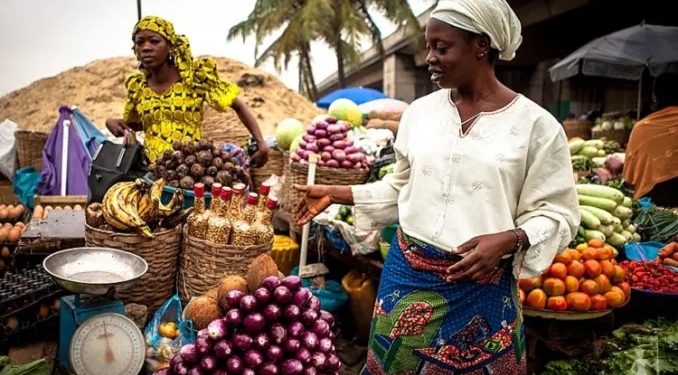Nigerians are experiencing increased spending with diminished returns as inflation has wiped out approximately N7.61 trillion from consumer expenditure in 2023. Data from the National Bureau of Statistics (NBS) shows that household final consumption expenditure climbed to N141.69 trillion in 2023, up 30.63% from N108.47 trillion in 2021. However, this increase is nominal.
In real terms, household consumption dropped from N52.45 trillion in 2021 to N44.84 trillion in 2023, reflecting a significant reduction of N7.61 trillion due to inflation. Real value, as defined by Investopedia, adjusts nominal values for inflation.
The NBS attributes the decline in real consumption to rising prices and adverse economic conditions. Inflation has been a persistent issue in Nigeria, soaring from 15.63% in December 2021 to 28.92% in December 2023, and reaching 33.95% by May 2024. High food prices, currently at 40.66%, have heavily impacted Nigerian households.
Picodi, an international e-commerce firm, reported that Nigerian households spent 59% of their income on food in 2023, the highest percentage globally. Additionally, the cost of a healthy diet surged by 110.7% to N1,035 per day in April 2024, according to a joint report by the NBS and the Global Alliance for Improved Nutrition.
This inflationary trend has increased Nigeria’s poverty rate, with the World Bank reporting a rise in the number of poor Nigerians from 89.8 million to 104 million in 2023.
Several factors contribute to Nigeria’s inflation, including excess liquidity, insecurity, and naira devaluation. Muda Yusuf, CEO of the Center for the Promotion of Private Enterprise, has called for an urgent policy response to address the economic emergency caused by spiraling inflation.
Yusuf identified high energy costs, currency depreciation, escalating transportation costs, high import duties, forex market illiquidity, logistical bottlenecks, security issues, low productivity, and Central Bank of Nigeria (CBN) financing of fiscal deficits as key inflation drivers. He suggested suspending all taxes and levies on petroleum product imports to alleviate rising energy costs and recommended deeper stakeholder engagement to develop a sustainable strategy.
Comercio Partners Research highlighted that high food inflation has significantly reduced Nigerians’ purchasing power, adversely affecting consumer spending and economic growth. The naira’s devaluation has exacerbated inflation, with the currency losing more than 50% of its value since May 2023. The World Bank has ranked the naira as one of Africa’s worst-performing currencies, noting that its depreciation has driven up prices in Nigeria’s import-dependent economy.
Nigerians are adapting to rising costs by cutting down on non-essential expenses, including luxury items, dining out, and subscriptions, according to a report by Phillips Consulting Limited.
In an attempt to control inflation, the CBN has increased its monetary policy rate to 26.25% as of May 2024. However, the World Bank’s ‘Global Economic Prospects’ report suggests that rate hikes alone are insufficient to curb Nigeria’s current inflationary trend.











